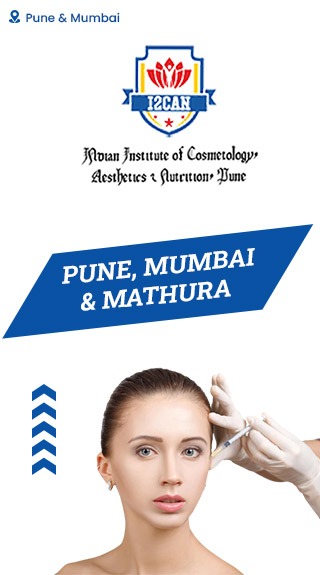In recent years, aesthetic gynecology has gained prominence as a subspecialty within the field of cosmetic surgery, offering procedures aimed at enhancing the appearance and function of the female genitalia. While these procedures can have transformative effects on a woman’s confidence and well-being, it’s essential to recognize the importance of comprehensive pre- and post-procedure counseling. In this blog, we’ll explore the significance of counseling in aesthetic gynecology, covering topics such as informed consent, patient expectations, psychological considerations, and post-operative care.
I. Understanding Aesthetic Gynecology:
Aesthetic gynecology encompasses a range of procedures designed to address cosmetic and functional concerns related to the female genitalia. These may include labiaplasty (reduction of the labia minora), vaginoplasty (vaginal tightening), clitoral hood reduction, hymenoplasty (reconstruction of the hymen), and more. While these procedures can improve aesthetics, alleviate discomfort, and enhance sexual satisfaction, they also carry risks and potential complications.
II. The Importance of Pre-Procedure Counseling:
- Informed Consent:
- Pre-procedure counseling is essential for ensuring that patients fully understand the nature of the proposed treatment, including potential risks, benefits, and alternatives.
- Surgeons should provide detailed information about the surgical technique, expected outcomes, recovery process, and potential complications, allowing patients to make informed decisions about their care.
- Informed consent forms should be signed after thorough discussion, documenting the patient’s understanding and agreement to proceed with the procedure.
- Managing Expectations:
- Pre-procedure counseling offers an opportunity to discuss realistic expectations and goals with patients.
- Surgeons should address common misconceptions and clarify what can and cannot be achieved through aesthetic gynecology procedures.
- Patients should be encouraged to express their concerns, preferences, and desired outcomes, facilitating a collaborative approach to treatment planning.
- Psychological Assessment:
- Aesthetic gynecology procedures can have profound psychological implications, impacting a woman’s body image, self-esteem, and sexual well-being.
- Pre-procedure counseling may involve assessing the patient’s psychological readiness and identifying any underlying concerns or body dysmorphic tendencies.
- Referral to a mental health professional may be warranted for patients experiencing significant distress or unrealistic expectations.
- Addressing Safety Concerns:
- Pre-procedure counseling should include a thorough evaluation of the patient’s medical history, current health status, and suitability for surgery.
- Surgeons should discuss potential risks and complications associated with the procedure, such as bleeding, infection, scarring, and changes in sensation.
- Patients with underlying medical conditions or contraindications may require additional pre-operative assessments or modifications to their treatment plan.
III. The Importance of Post-Procedure Counseling:
- Managing Recovery Expectations:
- Post-procedure counseling is crucial for preparing patients for the recovery process and managing expectations regarding post-operative discomfort, swelling, and healing.
- Surgeons should provide detailed instructions on wound care, activity restrictions, and follow-up appointments, ensuring that patients feel confident and supported during the recovery period.
- Emotional Support:
- Aesthetic gynecology procedures can evoke a range of emotions, including anxiety, vulnerability, and excitement.
- Post-procedure counseling offers an opportunity for patients to discuss their feelings, concerns, and any unexpected reactions they may be experiencing.
- Providing empathetic support and reassurance can help alleviate anxiety and facilitate a smoother recovery process.
- Monitoring for Complications:
- Close monitoring is essential during the post-operative period to detect and manage any complications that may arise.
- Surgeons should educate patients about warning signs of potential complications, such as excessive bleeding, infection, or abnormal swelling, and provide clear instructions for when to seek medical attention.
- Long-Term Follow-Up:
- Long-term follow-up is critical for assessing treatment outcomes, addressing patient satisfaction, and identifying any late-onset complications or concerns.
- Surgeons should schedule regular follow-up appointments to monitor healing progress, address patient questions or concerns, and document long-term outcomes.
IV. Ethical Considerations and Professional Responsibility:
- Patient Autonomy:
- Respecting patient autonomy and informed decision-making is fundamental in aesthetic gynecology.
- Surgeons should empower patients to make choices that align with their values, preferences, and personal goals, while providing accurate information and guidance to support their decision-making process.
- Professional Integrity:
- Surgeons have a professional responsibility to prioritize patient safety, well-being, and satisfaction throughout the entire treatment journey.
- Upholding ethical standards involves fostering open communication, respecting patient confidentiality, and maintaining transparency in all aspects of care delivery.
Conclusion:
Comprehensive pre- and post-procedure counseling plays a pivotal role in ensuring the safety, satisfaction, and well-being of patients undergoing aesthetic gynecology procedures. By providing informed consent, managing expectations, addressing psychological concerns, and offering ongoing support, surgeons can foster a collaborative and patient-centered approach to care delivery. Upholding ethical principles and professional integrity is essential in promoting trust, confidence, and positive outcomes in aesthetic gynecology practice.


